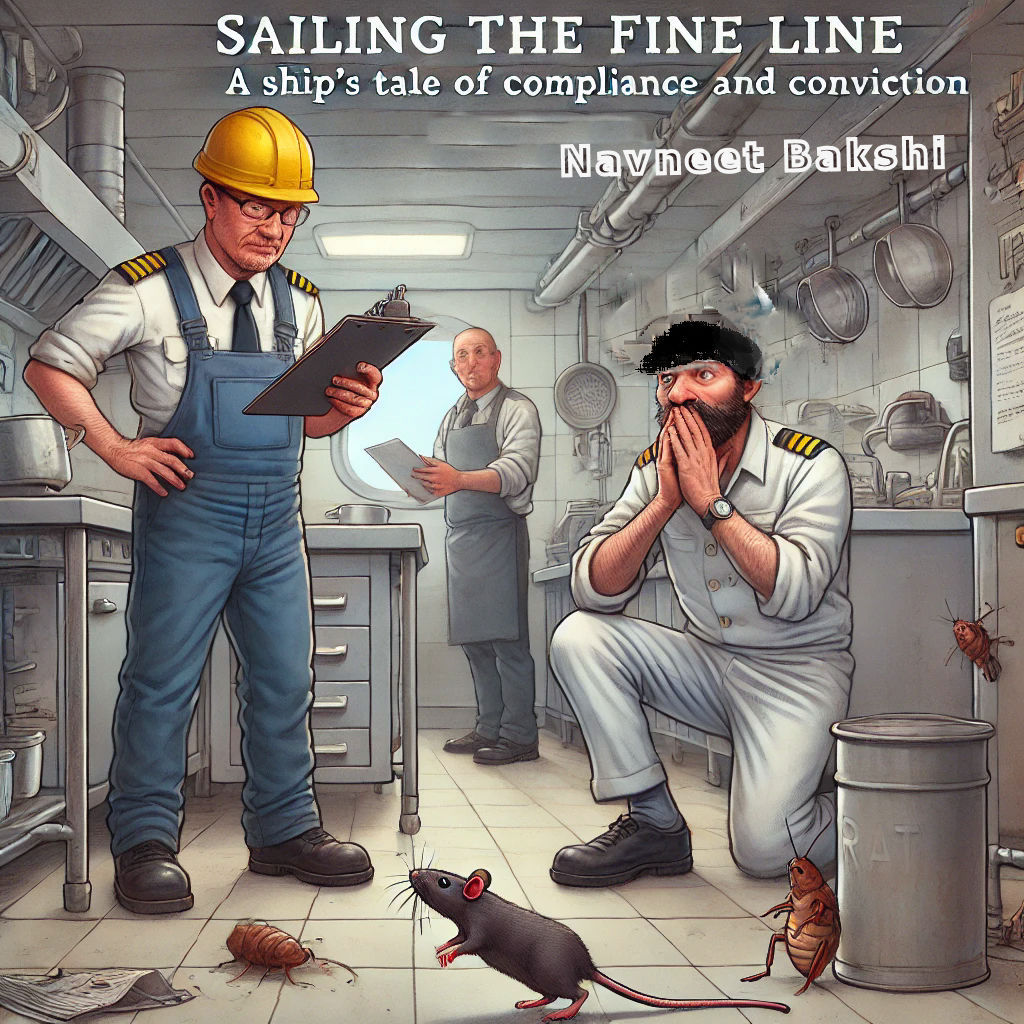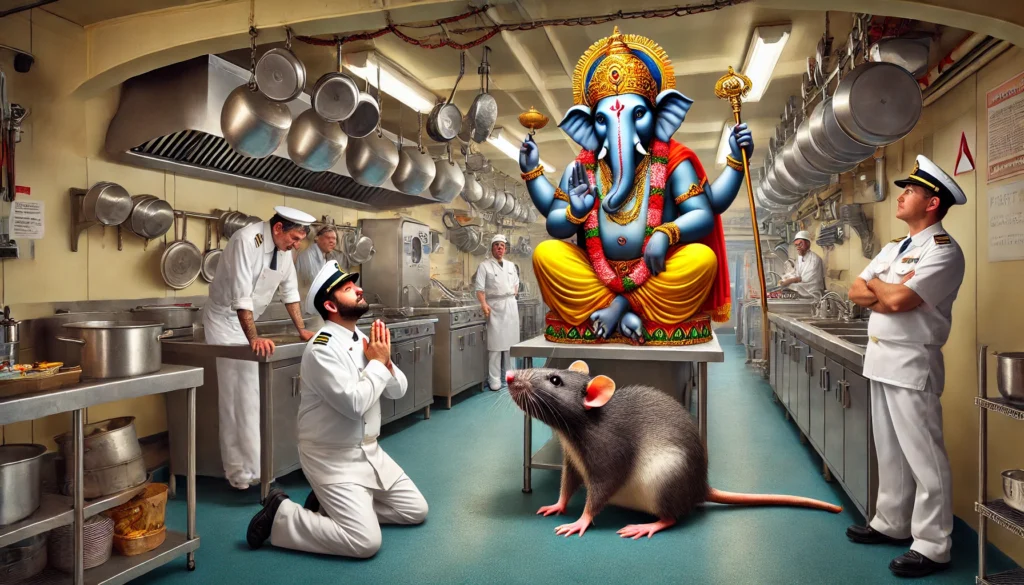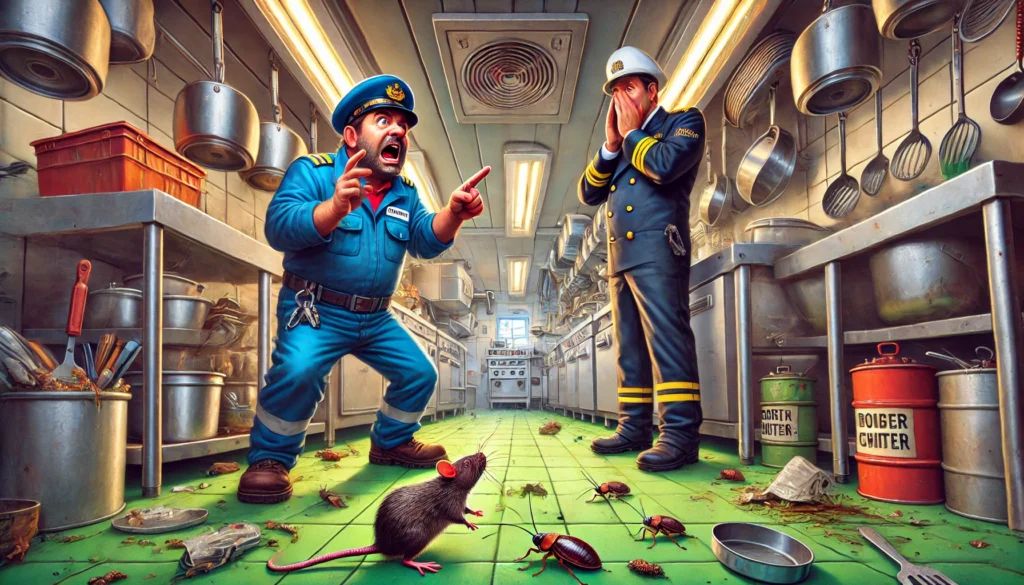Sailing the Fine Line
Sailing The Fine Line

This book definitely started evolving after one inspection by PSC ( Port State Control) onbaord a vessel I was on.
Sailing the Fine Line
- A Ship's Tale of Compliance and Conviction
“Sailing the Fine Line” is a fascinating dive into the world of seafaring, where regulations meet reality and humor mingles with deep introspection.
Through the lens of a meticulous Port State Control (PSC) inspection, the book masterfully portrays the intricate dynamics between ship staff and inspectors, blending wit, wisdom, and a touch of absurdity.
The author’s poetic storytelling style brings to life the challenges, resilience, and camaraderie of those who navigate the high seas.

In the vast and unpredictable waters of maritime life, where every voyage is a test of skill, wit, and resilience, Sailing the Fine Line brings to life the humor and hardships of a seafarer’s journey. Through a vividly imagined and poetic narrative, this book captures a unique day on board a merchant vessel—a Port State Control inspection at Helsinki.
As an unyielding inspector meticulously scours the ship for flaws, the captain, chief officer, and chief engineer engage in a battle of nerves, employing wit, charm, and even theatrics to navigate the scrutiny. With stakes high and consequences looming, their resourcefulness is tested to its limits.
Blending humor, humanity, and heartfelt reflection, Sailing the Fine Line is a compelling ode to the unsung heroes of the sea and the challenges they face to keep the world’s shipping lanes moving.
Set sail for an unforgettable voyage of compliance, conviction, and camaraderie!

The process of evolution of my poems is a continuous process. They are alive and breathing.
Every time I visit them, new thoughts come flooding to me, which I add to them instantly. And because of that each saved version is different from the other.
The idea of writing this poem started after an unexpected visit of feared PSC inspector at Helsinki in Finland. Finland is known for maintaing very high standards for shipping practices.
The ships constructed as per the Finnish standards are among the most rugged and the best.
Obviosuly they would like others to maintain those high standards of construction, maintenance and safety.
If you've seen some movies blue
you'll know men can't tell the smell
but well, they seem to enjoy
much as the women do
they look to be relishing
and longing for more
I believe all that they show is true.
But to be true here in the part of the world
that boasts of free sex
I'm surprised to meet you
where after the inspection,
I was planning to ask you
the phone number of a porn queen
who might be related to you.
But here I've met a saint
the kind I haven't seen
even in Indian mutts,
where I have been in search of solace
and haven't been able to
remove my eyes off the butts.
But the ship during its life times changes hands many times over. It’s seen as a money earning machine. The times for maintenance and repairs are short. The owners, the managers and neither the charterers are happy when the ship’s commercil operations have to be halted for doing the repairs.
The mandatory dry-docks are seen as the only period in which all necessary repairs must get done, but in the present day fast paced word, there’s a big price tag for every minute, and so delays are frowned upon, and the time for dry-docking is brought down to what is the minimum time required for the inspection of the ship’s bottom, and its repainting if necessary.
This process doesn’t require more than 3-4 four days of stay in the dry-dock and this is all the time in which the owners, and the managers think and try to sequeeze in all the urgent repairs, and the rest are left undone or ordered to be done at sea, during sailing, or at lay-off, which doesn’t happen.
In a nutshell with the passage of time, the condition of the ship’s hull, it’s machinery, keeps deteriorating, but the ship still complies with the stipulated requirements, although it’s potential of causing enviromental damage, loss of human life is substantially high.
There multiple agencies, installed by the governments of every nation to see to the implementations of rules and regulations framed by IMO.
But despite all this, ships flout the rules, accidents occur, and the saga goes on.
The International Maritime Organization sets standards for international shipping by developing regulations that can be adopted and implemented globally. Its remit includes maritime safety, security, environmental and legal matters.
But where is the humor in it?
“Well, humor is there in every aspect of life. One got to have an eye for it..”
As they passed through accommodation
The inspector chose to inspect the fridge
and on the pretext of relieving himself
went inside a common toilet
He came out with wrinkled nose
and a stipple of sweat on his forehead
wiped it with his sleeve and said
Meat is fusty and the toilets smell
The mate said, well but Sir. Er..
Good meat always smells bad
I’m sure you were not a sailor before So sad,
such a basic truth of life
One can’t surely learn from a wife
She may not let smell bad but surely can yell bad
Later if we had time, I’ll like to know
The experience you have had